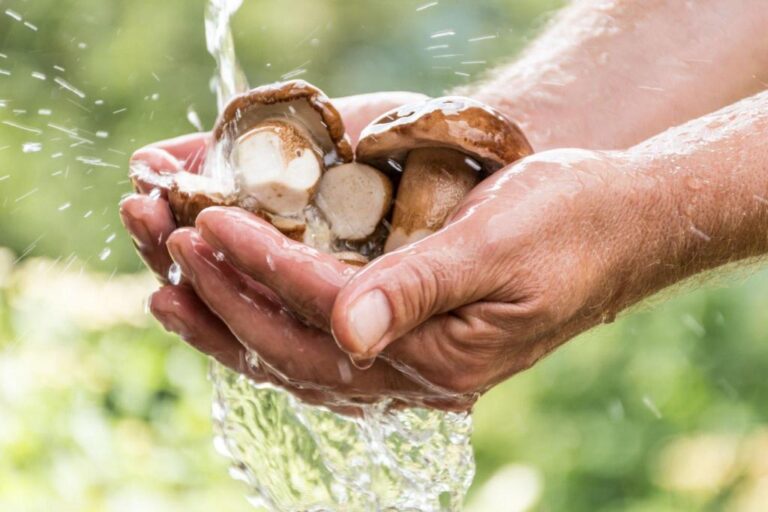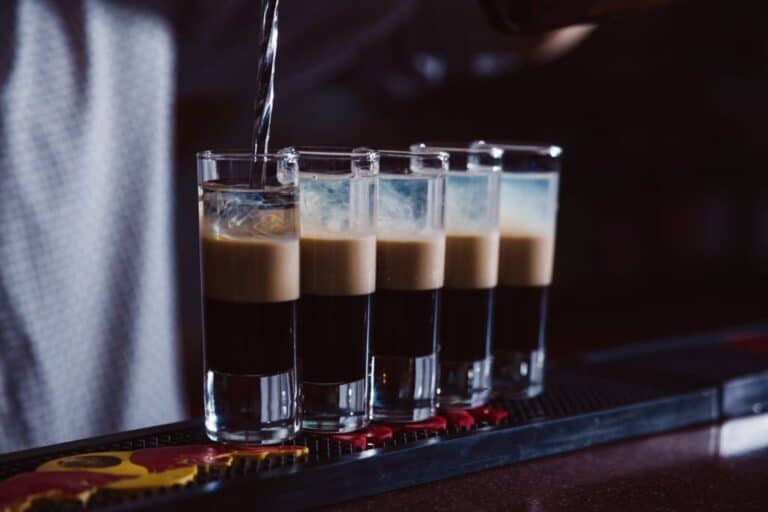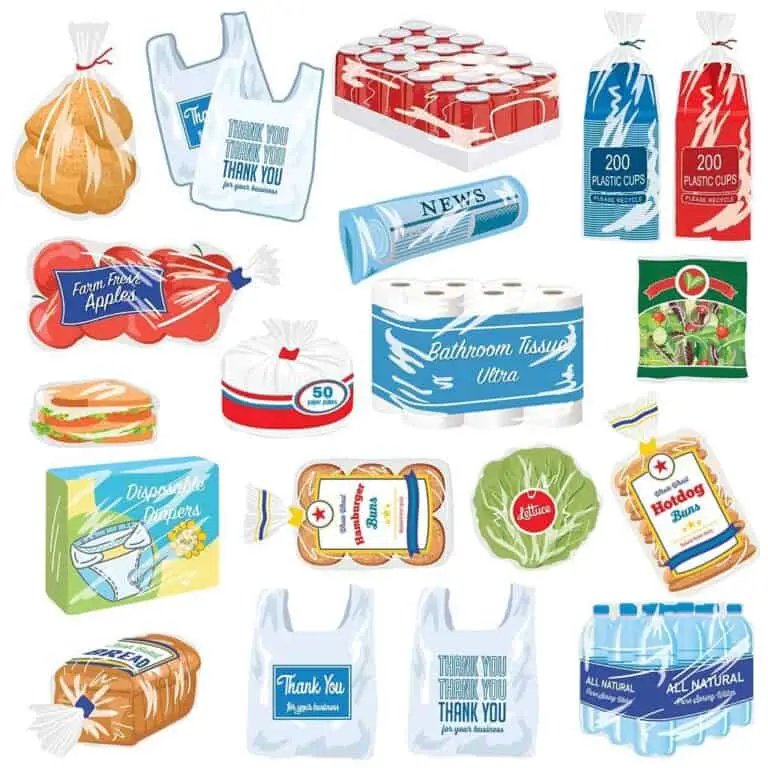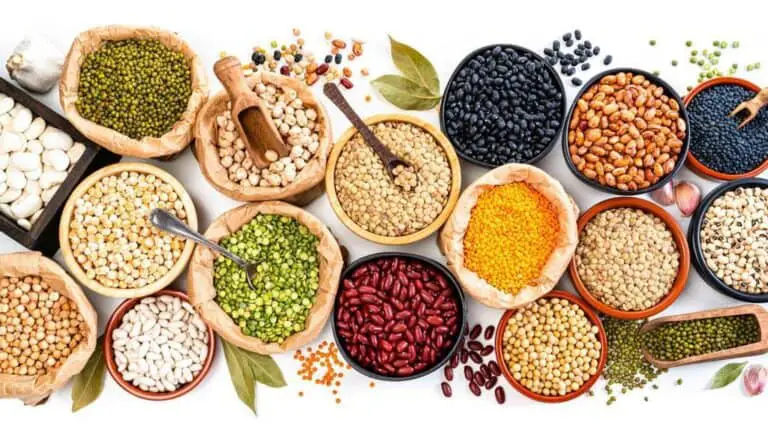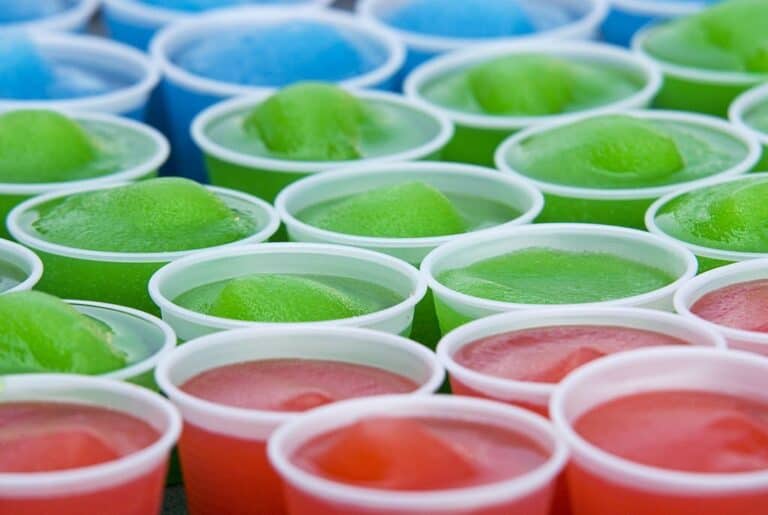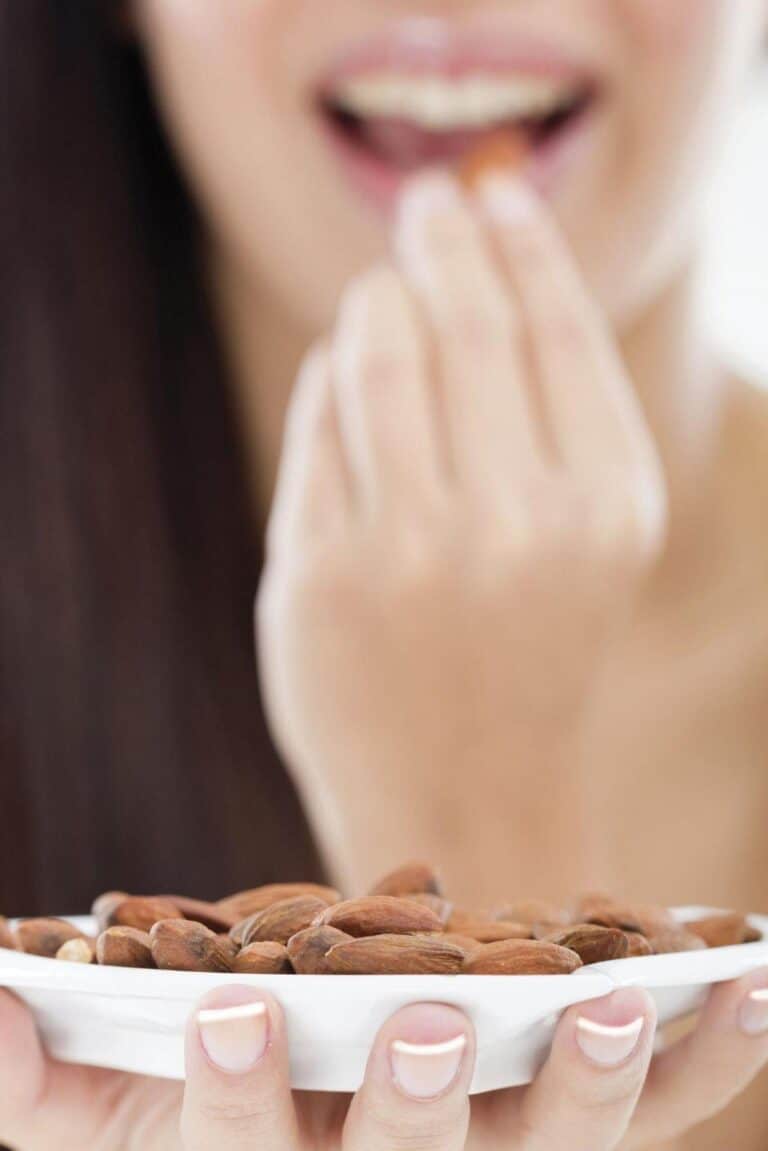Why Does Sparkling Water Taste Bitter? Discover the Causes!
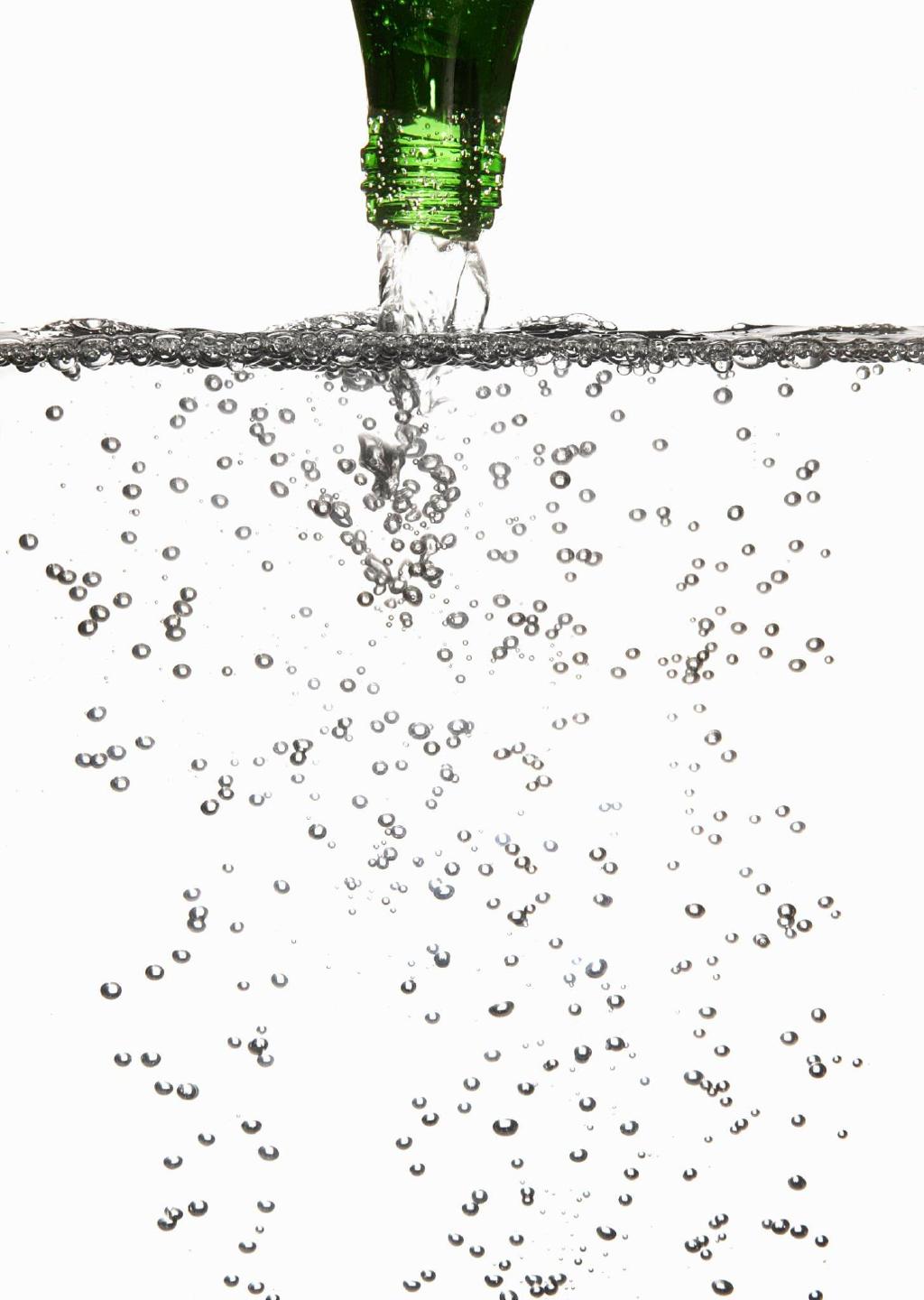
Sparkling water, with its effervescent charm and a multitude of flavors, has become a refreshing beverage choice for many. Yet, lurking beneath those delightful bubbles is a perplexing question: why does sparkling water taste bitter at times?
Why, you wonder, does sparkling water sometimes betray its effervescence with a bitter undertone? Fear not, for we are about to embark on a journey into the enchanting realm of sparkling water. We will unravel the mysteries that shroud its taste, dissecting the science and unveiling the hidden culprits behind its occasional bitterness.
So, dear reader, join us as we dive deep into the sparkling world of carbonation, exploring the nuances that transform your sparkling water from pure delight to an intriguing enigma. It’s time to sip, savor, and seek answers: Why Does Sparkling Water Taste Bitter? Let’s discover the causes together!
Introduction to Sparkling Water
Sparkling water has gained immense popularity in recent years, becoming a staple in the world of beverages. You’ll find it in various forms, from plain carbonated water to flavored varieties, all delivering a crisp and fizzy experience.
Before we dive into the bitterness mystery, let’s briefly understand what sparkling water is and how it’s made. Sparkling water, also known as carbonated water or soda water, is a carbonated beverage infused with carbon dioxide gas under pressure.
But what piques our curiosity is the occasional bitter taste that some associate with sparkling water. Is it a mere perception, or is there a scientific explanation behind it? Let’s embark on a journey to explore the science behind this phenomenon.
The Science Behind Sparkling Water
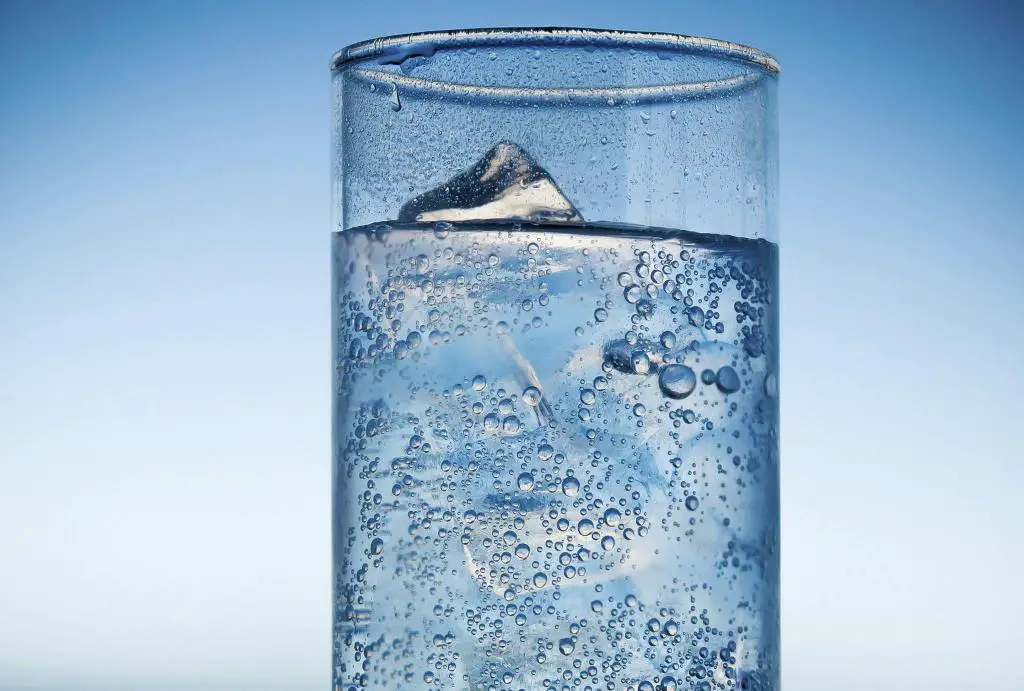
Sparkling water, often referred to as carbonated water or soda water, is essentially water infused with carbon dioxide (CO2) gas under pressure. This CO2 creates those effervescent bubbles that tickle your palate.
How Sparkling Water is Made:
- Carbonation: Carbon dioxide is dissolved in too-purified water, usually under pressure, to form carbonic acid (H2CO3).
- Bottling: The carbonated water is sealed in a bottle or can, maintaining the dissolved CO2.
- Release: When you open the bottle or can, the pressure decreases, causing the carbonic acid to release CO2 in the form of bubbles.
- Enjoy: The result is the delightful fizz of sparkling water that many people savor.
Now that we’ve demystified the creation process, let’s uncover the reasons behind that bitter taste.
| Read: Straight 8 in Supplement: Is It an Energy Drink? |
Why Does Sparkling Water Taste Bitter?
Bitterness in Sparkling Water – Myth or Reality?
Is the notion of bitterness in these effervescent beverages a mere misconception, or is it a legitimate taste sensation? Many individuals have differing opinions on this subject. Some argue that sparkling water can indeed taste bitter, while others claim it’s purely a myth.
The perception of bitterness in sparkling water can be attributed to various factors. Ultimately, whether it’s a myth or a reality is a matter of personal taste buds and their sensitivity to these nuances. It’s a fascinating topic that continues to spark discussions among avid sparkling water enthusiasts and skeptics alike.
The Bitterness Paradox
Intriguingly, some people actually enjoy the bitterness of sparkling water. It’s a bit like the allure of coffee’s bitterness, dark chocolate’s richness, or the complexity of hoppy beers. Bitterness, in moderation, can add depth and character to your beverage. So, the next time you detect a hint of bitterness in your sparkling water, try to appreciate it as a unique aspect of the drink.
The Causes of Bitterness in Sparkling Water
- Mineral Content:
One common reason for bitterness in sparkling water is the presence of minerals. While pure sparkling water should be free of any taste, some brands source water with a higher mineral content. Minerals like calcium, magnesium, or sodium can give the water a bitter taste. This is particularly true for sparkling mineral water, which contains naturally occurring minerals from its source. - CO2 Levels:
The amount of carbon dioxide dissolved in the water can also influence its taste. Overcarbonation, or water with an excessive amount of CO2, can create a sharp and bitter sensation on your taste buds. It’s essential to strike the right balance to ensure a pleasant drinking experience. - Water Source:
The origin of the water used to create sparkling water can impact its taste. Different water sources have varying mineral compositions, which can affect the overall flavor. Some sources may naturally contain minerals that contribute to bitterness. - Flavor Additives:
Certain flavored sparkling waters may contain additives like artificial sweeteners or natural flavors that can introduce bitterness. This bitterness might not come from the carbonation but rather from these additional ingredients. - Temperature:
The temperature at which you serve sparkling water can influence its taste. Cold temperatures can mask bitterness to some extent, while warmer temperatures might make it more pronounced. Experimenting with the serving temperature can help enhance your drinking experience.
How to Prevent Bitterness in Sparkling Water
If you find yourself consistently encountering bitter, sparkling water, fear not! There are several steps you can take to mitigate or even eliminate this unwanted taste:
1. Choose the Right Brand:
Opt for reputable brands that ensure the quality of their sparkling water. These companies often have stringent quality control measures in place to maintain a consistent and pleasant taste.
2. Check the Mineral Content:
Examine the mineral content listed on the label. Some brands specifically market their water as having “low mineral content” to cater to those who prefer a cleaner taste.
3. Control the Carbonation:
Invest in a home carbonation machine, such as a SodaStream, to control the level of carbonation in your water. This allows you to tailor the fizziness to your liking.
4. Experiment with temperature:
Try serving your sparkling water at different temperatures. Some people find that slightly chilled water tastes less bitter.
5. Avoid Artificial Additives:
If you’re sensitive to bitterness, choose sparkling water without added flavors or artificial sweeteners. These additives can often contribute to the bitter taste.
Sparkling Water vs. Still Water
While sparkling water can occasionally exhibit bitterness, it’s important to note that it’s not inherently worse than still water. Taste preferences vary from person to person. Some individuals enjoy the complexity and effervescence of sparkling water, while others prefer the simplicity of still water.
Carbonation:
– Sparkling Water: Infused with carbon dioxide gas, sparkling water is known for its bubbly effervescence. It can range from lightly carbonated to intensely fizzy.
– Still Water: Still water, on the other hand, is plain water without any added carbonation. It’s flat and free of bubbles.
Taste and Texture:
– Sparkling Water: It often has a crisp and refreshing quality due to the carbonation, which can create a tingling sensation on the tongue. The bubbles can give it a zesty or slightly acidic taste.
– Still Water: Still water has a smoother, neutral taste without any bubbles. It’s a go-to choice when you want pure, unadulterated hydration.
Use Cases:
– Sparkling Water: It’s a popular alternative to sugary sodas, offering a satisfying, fizzy experience without the calories. People enjoy it as a standalone beverage or as a mixer in cocktails.
– Still Water: Ideal for quenching your thirst, still water is the go-to choice for daily hydration. It’s perfect for cooking, making coffee or tea, and staying refreshed throughout the day.
In summary, the choice between sparkling and still water largely depends on your personal preferences and the occasion. Sparkling water brings the excitement of bubbles, while still water offers a pure, straightforward way to stay hydrated. Whether you savor the fizz or prefer the calm of stillness, both have their place in the world of refreshment.
Also read: Does Drinking Water After Eating Sugar & Sweets Lower Blood Sugar Levels?
Conclusion
Sparkling water can be a delightful and refreshing beverage, but it’s not immune to occasional bouts of bitterness. Understanding the causes behind this bitterness, from mineral content to carbonation levels, empowers you to make informed choices about your sparkling water preferences.
By experimenting with brands, controlling factors like temperature and carbonation, and avoiding certain additives, you can ensure a sparkling water experience that’s perfectly tailored to your taste buds. So embrace the bubbles, savor the fizz, and relish your sparkling water, whether it’s bitter or not.
FAQs on How to Reduce Bitterness in Sparkling Water
Does all sparkling water taste bitter?
No, not all sparkling water tastes bitter. The perception of bitterness can vary based on factors like mineral content, carbonic acid levels, and personal taste preferences.
Is sparkling water bad for your teeth due to its bitterness?
Sparkling water itself is not harmful to teeth, but the acidity from carbonation can potentially weaken enamel over time. However, it’s generally less harmful than sugary sodas.
Are there any health benefits associated with drinking sparkling water?
Sparkling water can help with hydration and may be a good alternative to sugary drinks. Some people find it aids in digestion. However, it’s essential to balance it with plain water for optimal hydration.
What is the best way to store sparkling water to maintain its taste?
To maintain the taste of sparkling water, store it in a cool, dark place away from direct sunlight and ensure the cap is tightly sealed to preserve carbonation. Refrigeration can also help keep it fresh.
Can you remove the bitterness from sparkling water?
Yes, you can reduce bitterness. Choosing brands with lower mineral content, controlling carbonation levels, and opting for plain sparkling water without additives can help minimize bitterness.
Is sparkling water healthier than regular water?
Sparkling water is just as hydrating as regular water and can be a healthier alternative to sugary sodas. It contains no calories or sugar, making it a good choice for those looking to reduce calorie intake.
Are there any health benefits of drinking sparkling water?
Sparkling water can aid digestion, alleviate indigestion, and promote a feeling of fullness. However, it’s not a substitute for regular water and should be consumed in moderation.
How does carbonation affect the body?
Carbonation can temporarily increase stomach pressure and potentially cause bloating or gas in some individuals. However, it’s generally safe for most people and doesn’t have significant adverse effects when consumed in moderation.

